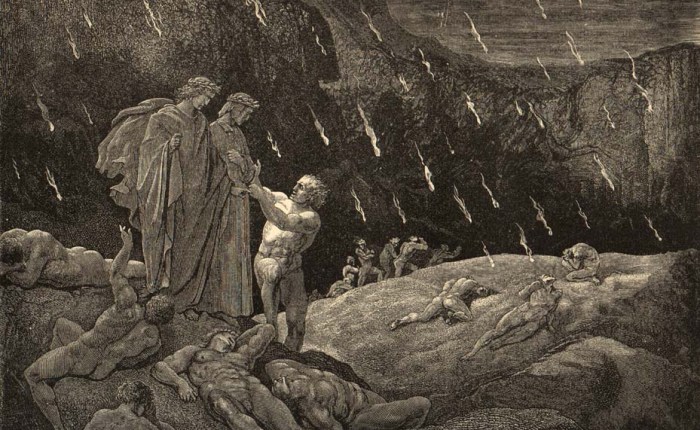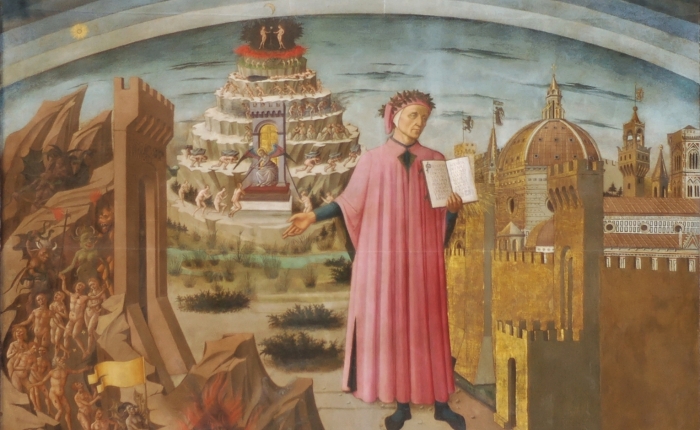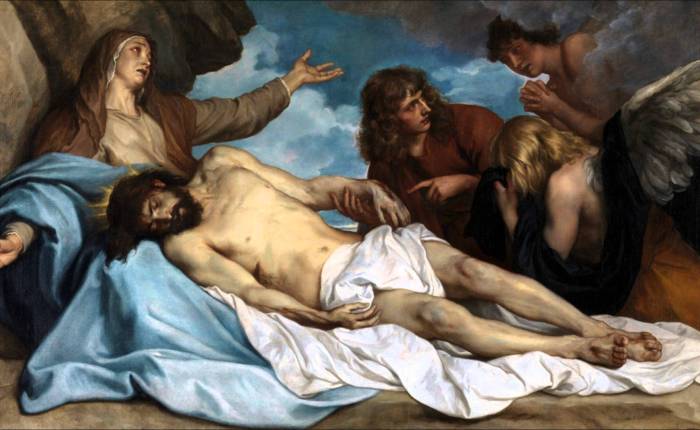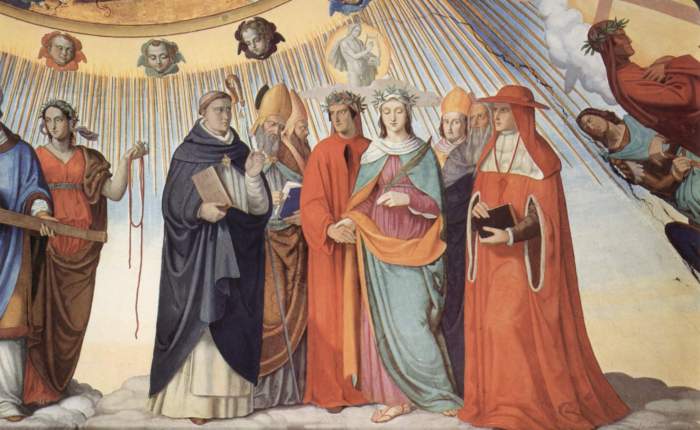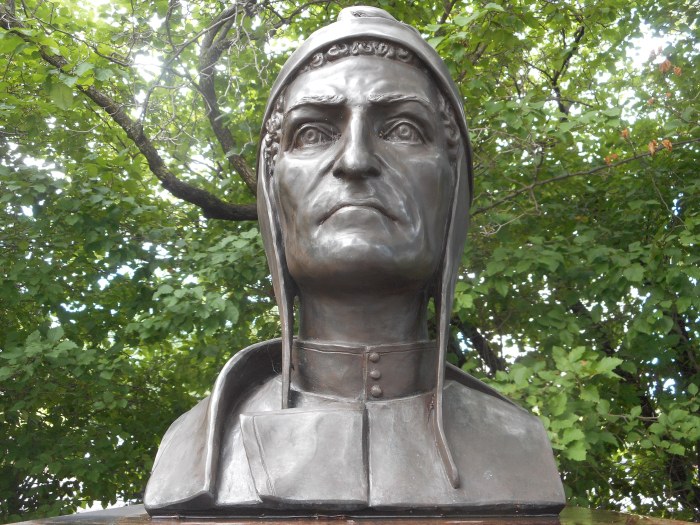The question of homosexuality in the modern age is both of great importance and of little importance. It is the strange paradox of assuming a symptom for the cause. The nature of the various reactions to it are, unsurprisingly, modeled by the phenomenon in question: namely, the application of erotic energy to the wrong target is the same way in which people—both who oppose homosexuality and those who revel in it—inappropriately direct their attention and passions towards the symptom rather than the cause. As with most things associated with the modern world, “homosexuality” has become so mired in dialectics and ideology that it is difficult to meditate upon the subject with any real clarity. To approach the subject with “eyes unclouded by hate” requires both calm and patience; it requires one to shed their previous, categorical expectations about the subject. One must approach it “primordially” and “essentially” rather than “politically” or “ideologically.” It is only then that a functional, reasonable, and charitable understanding of the subject and its causes can begin even if complete understanding would take much longer. I shall address my comments firstly to those who do not experience eroticized same sex attraction and, further down, to those who do—although both parts should be read by all potential readers.
Part I: Settings Things Straight
The great irony is that those who practice a rhetoric of hate towards their brothers and sisters are also guilty of sodomy. After all, the homosexual act produces no new life. It is a destructive force acting upon the soul and the body which apes the “spiritual intoxication” and the “procreative union” of higher living. Thus, he who professes to have all the faith in the world and yet does not love the homosexual man or woman is guilty of aping love while producing no new life within himself or the other. He is guilty of his own form of sodomy as he attempts to impose his will and power over others through the same kind of violation that mimics the insertion of one’s organs where they do not belong with no intention of creating, loving, or nurturing a new life that might come from such an encounter. How many “traditionalists” or “conservatives” do we know that simply use gay-bashing for pleasure rather than any real love for the people involved? Is this not the figure of sodomy?
The first step, therefore, if one professes to oppose homosexuality is to stop acting in a homosexual manner in their approach to the subject. One does not oppose the sterility of homosexuality with even more sterility as fundamentalists of any religion are prone to do nor does one oppose that sterility with promiscuity of “accepting what people do” in the modern concept. Instead, one opposes sterility through fecund virginity: through the model of Mary, full of Grace, who did not know a man. No manual or religious tract given out in the vestibules after Mass can replace this essential meditation.
Understanding one’s own actions in response to homosexuality also extends to the plane of the society. There is much fear and talk about the assault on marriage. However, it was not the homosexual who instigated the deterioration of families or marriage—he or she is merely the symptom of the failure of heterosexual couples to present marriage with any measure of sanctity or validity. The straight man and woman has done more to undermine traditional marriage than all the gay pride marches and states accepting same sex unions. How can traditional marriage be upheld when divorce rates are so high and the interior life of the family is so poor? If one meditates on the idea of the Holy Family and lives that ideal, do you think that homosexual “marriage” would enter the societal consciousness? No, if one maintained “traditional marriage” instead of giving in to bourgeois concepts of quantified, economic partnerships between a man and a woman, then society would intrinsically understand that “homosexual marriage” is not equivalent.
If heterosexual couples did not engage in fetishizing the sublime ecstasy of the spiritual union of the sexual act or create a sexualized culture around husband and wife (especially as the two are encouraged to use prophylactics), do you think that society would consider these actions equivalent to homosexual unions? No, the sad irony is that the sterile, modern, pornographic, contraceptive society has mass produced sterile families and relationships and this finds, as one of its expressions, the homosexual phenomenon. Therefore, if a “traditionalist” feels anger and compulsion to “fight” the assault on the family, his enemies are closer to his milieu than the hooligans waving pride flags.
Thus, if we have anything to “apologize” to homosexuals for, it is our own inability to provide example and courage in the face of a deteriorating society. It is for projecting our own sterility onto them and hating them for it. The problem, as always, is that men have become weak and unable to introspect. Therefore, the greatest apology we can give is to move to action: fix our marriages; practice chastity in our relations; practice charity in a fecund and virginal way; infuse the spirit into our material movements. Because, after all, what is one of the true essentials of the heterosexual union? It is the participation in God breathing spirit into matter. If man does not live his life constantly infusing spirit into matter; if he does not live his life sacramentally and ritually; if he does not live his life where meaning is impregnated into his material dealings, then is he not living the homosexual ideal of materialism only? Is he not living the homosexual life of sterility?
Part II: Riding the Tiger of Homosexuality
To you, dear homosexual reader, I want to express the same respect and compassion that Dante showed to his friend Brunetto Latini when he found him in the burning desert of the sodomites in Hell in Canto XV of the Inferno. In many ways, the sublime Poet truly understood the condition. The sterile fire descending in a parody of the way in which the Holy Spirit descends and gives life. The flames come down like rain as a meditation on the way in which that which was meant to give life and consolation is instead a burning fire that consumes and obscures the one damned to it.
Any person who experiences eroticized same sex attraction can recognize this and affirm it in himself: the burning compulsion that forces them to move from one person to another or from one excitement to another is the same way that the damned in the desert of the sodomites must continuously run spurred on as they are from the flames descending. Just as a desert is a symbol for sterility, so, too, is the homosexual relationship not just materially sterile in that it produces no offspring, but it often locks the sufferer into the same, old modes and insecurities. There is no new life that springs forth in him. The new life of a man or woman does not surface, only the young adult remains.
And yet most people don’t know of the next time that homosexuals appear in the Divine Comedy. In the final cornice of Purgatory leading to the Terrestrial Paradise, homosexuals are also running and also tortured by flames. Indeed, that entire ledge of the mountain of Purgatory is engulfed in fire. Here, those who are lustful run clockwise while those who are lustful towards the same sex run counterclockwise. Then suddenly, what happens when the two running groups meet each other? A kiss. A chaste kiss is exchanged between all the parties.i Dante’s great wisdom demonstrates again that any who wish to purge themselves of the sterility associated with homosexuality is not doomed to loneliness, negation, or any lack of intimacy. Indeed, if he learns to endure the fire of desire, much like his heterosexual counterparts, he is rewarded with true brotherhood. Although he or she is asked to walk a different (counterclockwise) path than the other lovers of the world, he or she is afforded the same opportunity to be satisfied with intimacy. He does so not by negating his desires, but finding the chaste fulfillment of them analogous though different (again, clockwise vs counterclockwise) vis a vis his heterosexual counterparts. He does not seek to leave the fire, but uses it to fuel his purgation upward.
But what about those homosexuals who insist that this would be a denial of their “identity” to ask them to live chastely? First, let us take a quick side note to address the objection that to ask homosexuals to deal with their issues is “unfair.” This particular question is, really, an extension of the objection of “why do bad things happen to good people?” and it transforms into “why must homosexuals be burdened with self-denial?” Some might even ask themselves “why was I born this way? If God made me this way, shouldn’t I engage in it?”
First, the call to virtue falls on every man. I made it clear in the first part that the burden of society’s problems with homosexuality rests primarily with those who do not experience it. The maintenance of “traditional marriage” is a responsibility which requires just as much spiritual maturity and work as asking a homosexual person to maintain their chastity. While people may be born homosexual or heterosexual (I do not deign to worry about such details), they are certainly not born chaste. Chastity must be practiced for any person. If, in this world, it seems as if heterosexuals have it “easier,” the problem is that, both in their interior lives presently, and in the next life, they live in Hell if they do not practice chastity. Their quality of life is just as sterile. Any authentic person can see just how debased is the life of the promiscuous playboy or the online pornographer.
The objection then becomes “but why do heterosexuals get to engage in sex and I can’t engage in homosexual gratification?” One answer is that most heterosexual sex is illegitimate anyway. Most don’t have the legitimacy to approach sexual gratification in a transcendent manner. Most sex is horizontal (literally and figuratively). Partners in heterosexual acts objectify and dehumanize each other with a stunning degree of frequency even among married couples.ii The problem is that many traditionalists are attempting to impose ideal standards on homosexuals without enforcing such standards on heterosexuals. These questions, however, are beginning to converge with meditations on what the sexual act should be and what it means—topics of which would be too extensive to deal with in a post such as this. Therefore, such questions about sex and physicality will have to wait for another time.
As for “why was I born this way?” it is a question many people of a traditional bearing ask themselves. Why were many people born in this debauched, modern world? Why do many of us feel alienated in an “epoch of dissolution?” Why are some of us born with deformities and some of us abused as children? The great mass of affliction is not unique to the homosexual experience. The question is not whether we can kill the tiger of homosexuality, but if we can ride the experience to a greater contemplation of the Divine. In other words, how can we change our wounds into that which allow us to bring about salvation? How can we accept the cross so that we may die with Christ? To be born a homosexual, like one born with a deformity, is a call to assume a path far greater than “normal” people. It is not a curse, but an invitation to rise higher.
I mentioned to my friend Adam when discussing deformity that my father, the chess master, when he knows he’ll be facing an inferior opponent, sometimes plays the game without his queen or rook or knight in order to provide himself a challenge. He not only learns more, but increases his skill and mastery. In fact, there are times when he plays blindfolded! I think of this when I imagine why it was that I was born into the modern world or why a homosexual might be born with same sex attraction (assuming that it is innate although one can easily look up resources stating the contrary). In essence, one possible way in which certain types of people (not all) can approach this “affliction” is to become a master. They can maintain virtue despite handicaps and, thus, become even greater than many saints of the past who did not have to deal with their unique, modern problems.
Finally, to the question of denying one’s identity, that is, indeed, a fundamental and important aspect of understanding homosexuality. Whether or not homosexuality is intrinsic to a person ontologically has always been rejected by traditional societies. Homosexuality prior to the Victorian era was considered an action—and actions never defined a person.iii Sodomy was seen as aberrant behaviour rather than a sign of an interior reality.
The problem of identity, however, is not unique to homosexuality. Plenty of young men and women, lacking initiation in the modern world and real, legitimate elders (not to mention parents), find themselves “lost” and unable to cope with who they think they are. The whole question of identity, therefore, is one of the larger issues which underpin homosexuality and has homosexuality as one of its symptoms. Unfortunately, there is not enough time or space to discuss the question of identity properly in this post, but it is important to take note of its role in this phenomenon.
I shall close this post with saying that the modern world often offers a false dichotomy between repression (sterility) and acceptance (promiscuity). This tendency towards Manicheanism of fighting between spirit (repressing material desires) and matter (indulging in material desires) is a defining quality of the modern era and should be resisted by all people of good will. All those who are courageously attempting to make themselves saints by enduring the fire of homosexuality and engaging in chaste and fulfilling lives, your scars will shine more beautifully in heaven than many others and, like those who fought on Saint Crispin’s day even though they were outnumbered five to one, your glorious adherence to virtue despite suffering the handicap of same sex attraction, will force all other shades to hold their manhoods cheap whilst you speak. Even then, I give you a word of consolation. It is possible to achieve the level of intimacy you desire without succumbing to the sexual act. It is possible to feel the companionship, closeness, vulnerability, and support you are looking for and there are still societies and people out there willing to offer such help.iv
i Purgatorio XXVI, 31-33.
ii I freely admit that I have no quantitative proof for such a claim as this except the prevalence and popularity of pornography. The reader will have to decide whether or not this bears true in his or her experience.
iii The Historian Michel Foucault made this observation in 1976
iv My good friend David Prosen has many resources on this topic so it would be helpful for anyone who wishes to know more about such a chaste lifestyle to investigate him.
